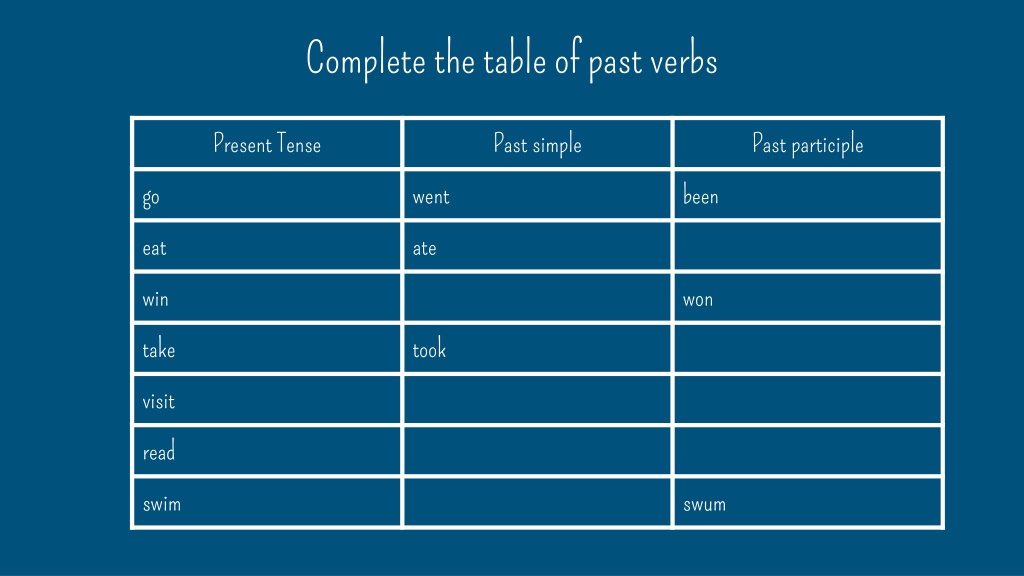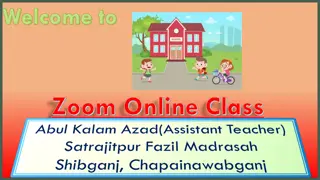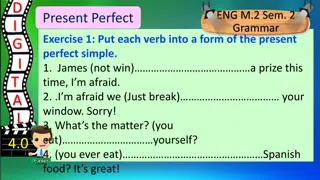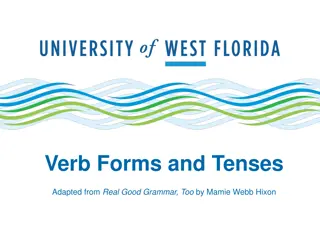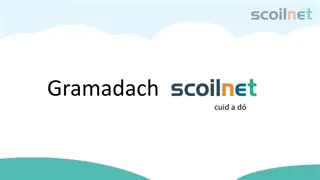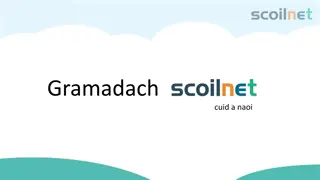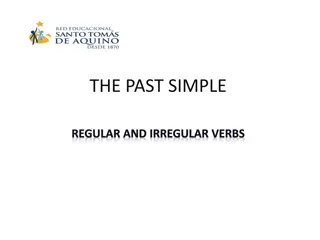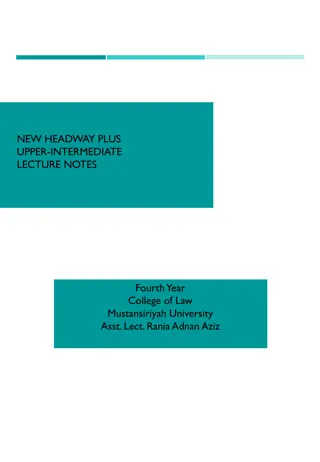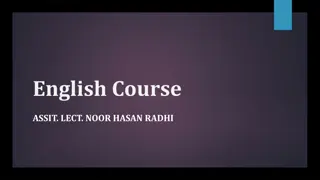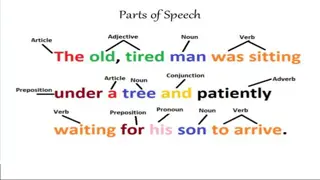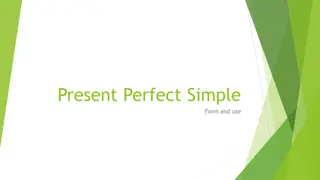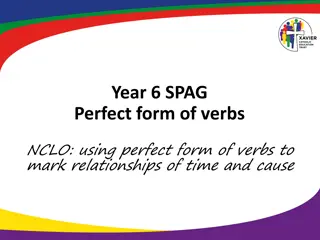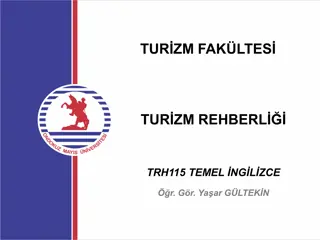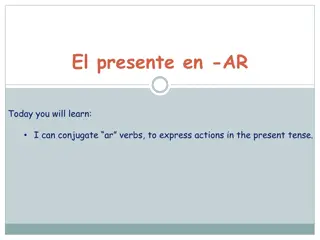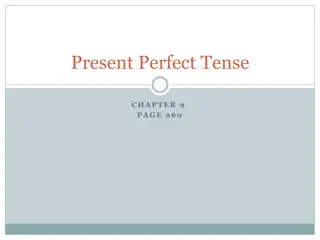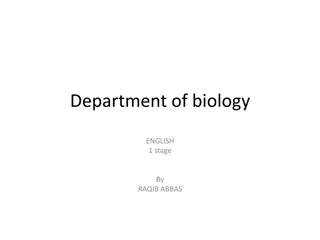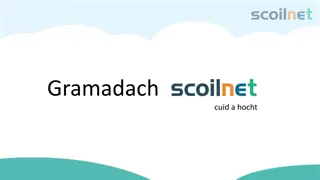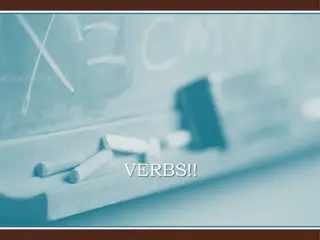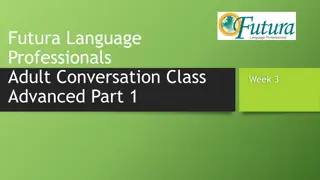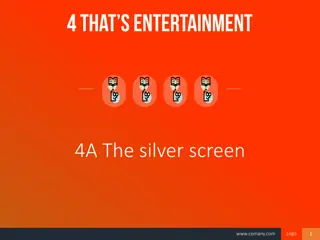Learning Past Verbs and Present Perfect Tense
This content discusses past tense verbs through completing tables, giving examples, and exploring the present perfect simple tense with real-world scenarios. It covers verb conjugations in the past tense, such as went, ate, won, took, and swam, along with explanations and exercises related to the present perfect tense like "I have lived in Thailand for 12 years." The engagement includes interactive questions and activities to reinforce understanding and application.
Download Presentation

Please find below an Image/Link to download the presentation.
The content on the website is provided AS IS for your information and personal use only. It may not be sold, licensed, or shared on other websites without obtaining consent from the author.If you encounter any issues during the download, it is possible that the publisher has removed the file from their server.
You are allowed to download the files provided on this website for personal or commercial use, subject to the condition that they are used lawfully. All files are the property of their respective owners.
The content on the website is provided AS IS for your information and personal use only. It may not be sold, licensed, or shared on other websites without obtaining consent from the author.
E N D
Presentation Transcript
Complete the table of past verbs Present Tense Past simple Past participle go went been eat ate win won take took visit read swim swum
Complete the table of past verbs Present Tense Past simple Past participle go went been eat ate eaten win won won take took taken visit visited visited read read read swim swam swum
Aim: To investigate the present perfect simple tense I have lived in Thailand for 12 years.
Talk Partners -Answer the questions at the bottom I have workedat Shrewsbury International School for 5 years. 1. Have I finished working at Shrewsbury? 2. Do I still work at Shrewsbury now? 3. Will I work at Shrewsbury in the future?
Talk Partners -Answer the questions at the bottom I have livedin Thailand for 12 years. 1. Do I still live in Thailand now? 2. When did I start living in Thailand? 3. Have I finished living in Thailand.
What tense is this? I have livedin Thailand for 12 years 1. The past simple. 2. The present perfect simple. 3. The present simple.
Present Perfect Simple Tense I have livedin Thailand for 12 years 12 years ago Past Present Future
Fill in the gaps 1. I have ___________ (study) at Shrewsbury for _________________ years. 2. I have ______________ (read) _____ books this year. 3. I have ___________ (be) to _________ four times this year. Extension: Draw a timeline of your sentences to show how the present perfect works
Fill in the gaps to show how the present perfect simple works The present perfect simple tense always contains the verb _____ / has + The present perfect simple tense always contains the verb _____ / has + the past _______. the past _______. The present perfect connects the _____ to the ______. An example The present perfect connects the _____ to the ______. An example of the present perfect is I have .. of the present perfect is I have .. have / has past participle present past
Fill in the gaps to show how the present perfect simple works The present perfect simple tense always contains the verb The present perfect simple tense always contains the verb have have/ has + the / has + the past past participle participle. . The present perfect connects the The present perfect connects the past past to the to the present present. An example of the . An example of the present perfect is I have .. present perfect is I have .. have / has past participle present past
Questions in the Present Perfect simple tense ? Have you been to England? Has Steve been to England? How long have you lived in England for? How often have you been there?
For the sentences you wrote -write the question you would ask E.g. How long have you studied at Shrewsbury for? 1. I have ___________ (study) at Shrewsbury for _________________ years. 2. I have ______________ (read) _____ books this year. 3. I have ___________ (be) to _________ four times this year.
Find someone who... 1. Walk around the classroom and ask questions using the present perfect simple tense Example: a. play / football b. Have you ever playedfootball? c. When a classmate answers Yes, I have. write their name in the corresponding box d. Then ask a follow up question to find out more. e.g When, where, why e.t.c. Find a different student for each box. 1. When you have finished, you will report back to the class on what you have found out about different people.
TICKET TO LEAVE THE CLASS
